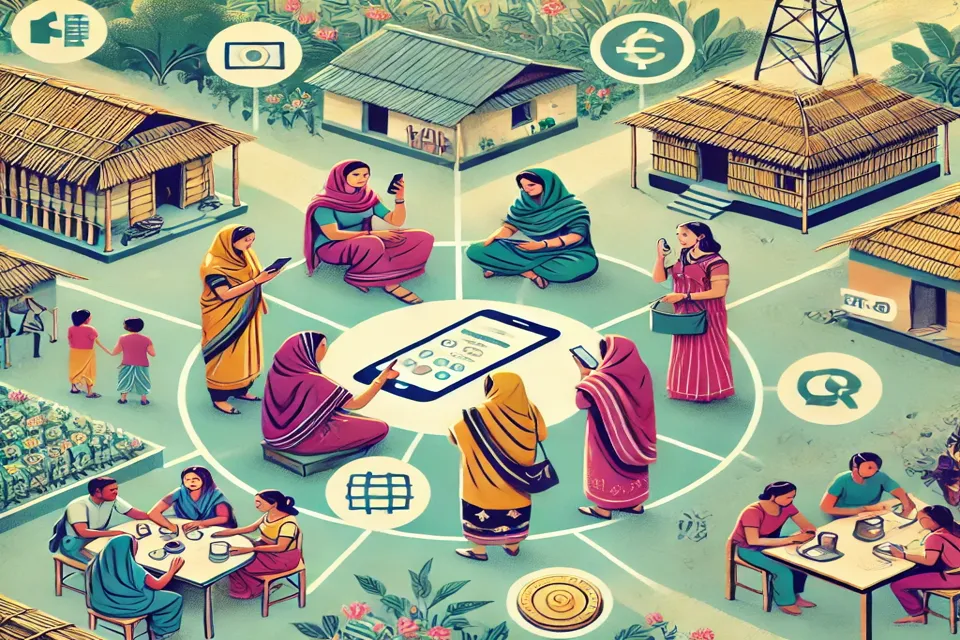Project Details

Topic: Economic Development
Researchers: Prof. Asad Islam, PhD, Farzana Afridi , Siwan Anderson
Partners: Implementation Partner: Unnayan (local NGO, operational in Khulna, Satkhira, Bagerhat, and Jashore districts).
Research Partner: Global Development and Research Initiative (GDRI).
Financial Service Providers: bKash and Nagad.
Study Area: Rural areas of Khulna Division, Bangladesh, specifically in the districts of Khulna, Satkhira, Bagerhat, and Jashore.
Duration: 2024-09-16 to 2024-09-15
#active
The Household Dynamic of Digital Finance and Female Empowerment.
Background
Women’s economic empowerment (WEE) in rural Bangladesh is often hindered by entrenched gender norms and traditional power dynamics. Digital Financial Services (DFS) present a transformative opportunity to enhance WEE by providing women with greater financial autonomy, privacy, and control. However, such empowerment can sometimes lead to household conflicts due to shifts in established roles and expectations.
This project explores the impact of DFS interventions on WEE and household dynamics. It assesses whether providing women with digital loans, coupled with support groups focused on family dynamics, improves economic outcomes, empowerment indicators, and household harmony. Conducted in collaboration with the local NGO Unnayan, the study employs a rigorous randomized controlled trial (RCT) to generate evidence-based insights into the relationship between DFS and intra-household dynamics.
Project Details
1. Objective
- Evaluate the impact of DFS on women’s economic empowerment, autonomy, and decision-making.
- Assess the influence of support groups addressing household dynamics on empowerment and conflict resolution.
- Compare outcomes of digital versus cash loans, with and without additional support mechanisms.
- Investigate unintended consequences, such as potential male backlash, and identify strategies to mitigate them.
2. Target Group
- Primary Participants: 2,400 female microfinance borrowers, aged 20–50, from rural Bangladesh, served by Unnayan.
- Secondary Participants: Husbands of the borrowers, surveyed to understand household dynamics and decision-making processes.
3. Methodology
- RCT Design:
- Participants divided into four treatment groups:
- Cash Loan without Support
- Cash Loan with Support
- Digital Loan without Support
- Digital Loan with Support
- Baseline, endline, and follow-up surveys to measure economic, empowerment, and household behavioral outcomes.
- Participants divided into four treatment groups:
- Interventions:
- Digital loans disbursed through mobile money accounts with PIN protection.
- Support groups providing training on healthy household decision-making and negotiation skills.
- Behavioral nudges (e.g., text messages) sent to husbands to encourage collaborative decision-making.
4. Key Results (Anticipated)
- Increased financial autonomy and decision-making power for women receiving digital loans.
- Reduced household conflicts and improved marital satisfaction among groups receiving support interventions.
- Enhanced empowerment and harmonious household behaviors for women receiving digital loans with support.
- Insights into balancing privacy in financial transactions while maintaining household harmony.
5. Financials
- Total Budget: USD 197,582.96.
- Funding allocated for intervention design, digital training, survey implementation, and evaluation.
- Supported by WEE-DiFine in partnership with local and international stakeholders.
6. Sustainability
- Partnerships with local NGOs and financial service providers (e.g., bKash and Nagad) to ensure scalability.
- Capacity-building workshops for stakeholders to integrate findings into future programs.
- Community engagement through support groups to foster long-term change in gender norms and household dynamics.
7. Probable Learning Topics
- DFS interventions significantly enhance women’s empowerment when paired with household support mechanisms.
- Male involvement and collaboration are critical to minimizing backlash and fostering harmonious outcomes.
- A deep understanding of cultural and gender norms is essential for designing effective and sustainable interventions.